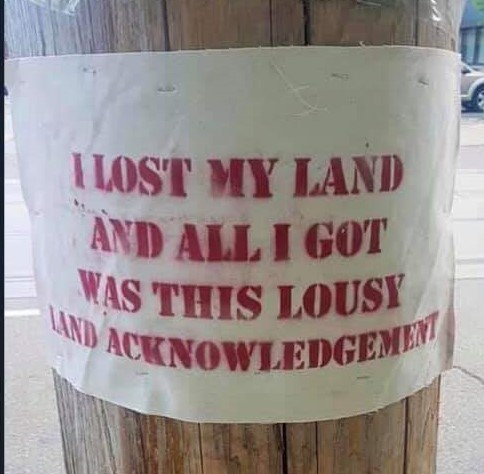Becoming an ally to Indigenous people
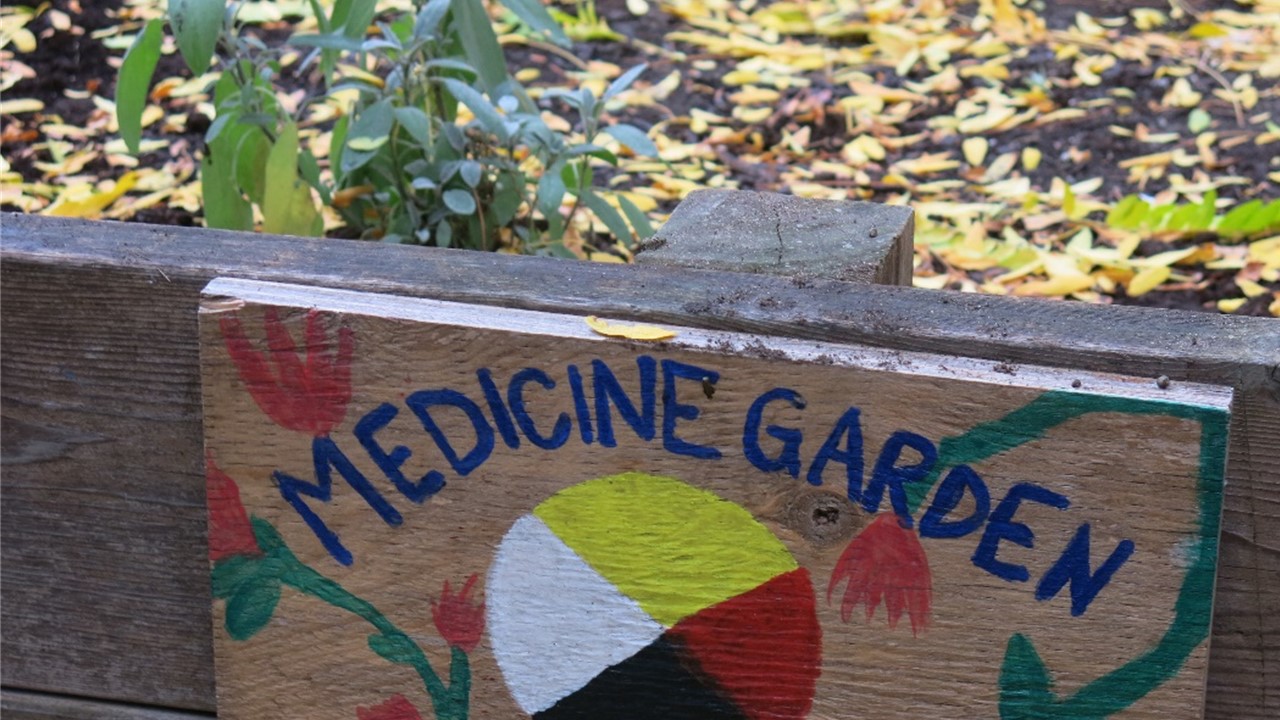 I want to
learn more. Where do I start?
I want to
learn more. Where do I start?
We’re often asked by non-Indigenous colleagues
who want to become better allies where they can start. Here are a few
suggestions and a resource list.
1 . Start with your own research.
When we say research, we're talking less about becoming knowledgeable and more about approaching relationship-building with a good mindset. It can help you understand your unconscious biases and cultivate the openness and humility so that you can act respectfully. See our resource list below to get started.
2. Develop a “learning attitude”
Get ready to listen and reflect! Be prepared to hear difficult truths about other people’s experiences and yourself. Be aware of your own reaction to what you’re hearing and learn how to respond constructively. Are you feeling defensive or personally attacked? Understand that this is not easy work.
3. Go to Indigenous events
Rather than inviting Indigenous people to come to your events or partner on your projects, you can learn by going out to hear speakers, attend demonstrations, visit pow wows and explore the work of Indigenous artists.
A few things to keep in mind when attending events:
- Some events or spaces may only be for Indigenous people. Often promotional materials will specify this, but if you’re in doubt, asking is better than assuming.
- Ask before taking photos or videos. Taking pictures of sacred items and ceremonies is generally considered disrespectful. The same is true for touching any regalia or ceremonial items.
- Learn about Indigenous protocols, such as working with elders and offering tobacco.
Questions and concepts to take on the path
- What is my motivation for doing this? Who benefits?
- How does my social location (race, gender, economic status, age, physical and mental health) affect how I see any given situation? How might that situation look different from another perspective?
- It's okay to make mistakes, it's part of learning something new
- Indigenous nations and individuals are diverse, not everyone will follow the same protocols, use the same language or have the same opinions.
- Don't assume you know. Ask.
- Nothing for us, without us
BIPOC (Black, Indigenous and People of Colour)
Sometimes the focus of antiracist work is on Black and Indigenous people as opposed to other racialized groups. Racism is not monolithic and people of different identities will experience racism differently. Research has shown that Black and Indigenous people tend to be the racialized groups most impacted by food insecurity, poverty and police violence.
Settlers/guests who are not from European backgrounds may have a different relationship to Indigenous people than White Europeans and a different analysis of Canada's colonial history and current situation. They may also come from painful colonial and racist contexts, but continue to be guests on these lands.
Resources
If you’re not sure where to start, begin with some of the resources on decolonizing. They will help you approach and process what you find in the other links.
For a list of Indigenous gardens and organizations, see
http://torontourbangrowers.org/indigenous-gardens-and-organizations
Becoming an Ally/ Decolonizing
http://unistoten.camp/no-pipelines/resources/allyship/
https://warriorpublications.files.wordpress.com/2014/01/ancestral_pride_zine.pdf - practical tips and ways to think about allyship
https://4rsyouth.ca/land-back-what-do-we-mean/
- how to be an ally in land reclamation
Unsettling
the Settler Within Paulette Regan https://www.ubcpress.ca/asset/9215/1/9780774817776.pdf
http://activehistory.ca/2020/02/exposing-the-settler-playbook-responses-to-shutdowncanada-in-historical-context/ - some common tactics that non-Indigenous
people use to maintain the status quo and deny privilege
Whitewashed Hope - a comparison of Indigenous world views to regenerative agriculture and permaculture
https://docs.google.com/document/d/1er9ixhlZWmwNgywzKPNPuGVfrM5KjeRBdVMiIsjtLUM/edit
http://www.groundworkforchange.org/what-is-decolonization.html list of readings and videos
The RÉSEAU de la communauté autochtone à Montréal/Montreal Indigenous Community Network has an ally toolkit and a pathway to learning document with links to educational resources.
In the
spirit of needing to heal ourselves before becoming good allies or accomplices:
https://shelterforce.org/2019/03/12/why-we-must-first-be-well-before-we-can-do-the-work-of-the-people/
For more
examples of challenging White supremacy, privilege and fragility, see http://torontourbangrowers.org/dismantling-anti-black-racism-2
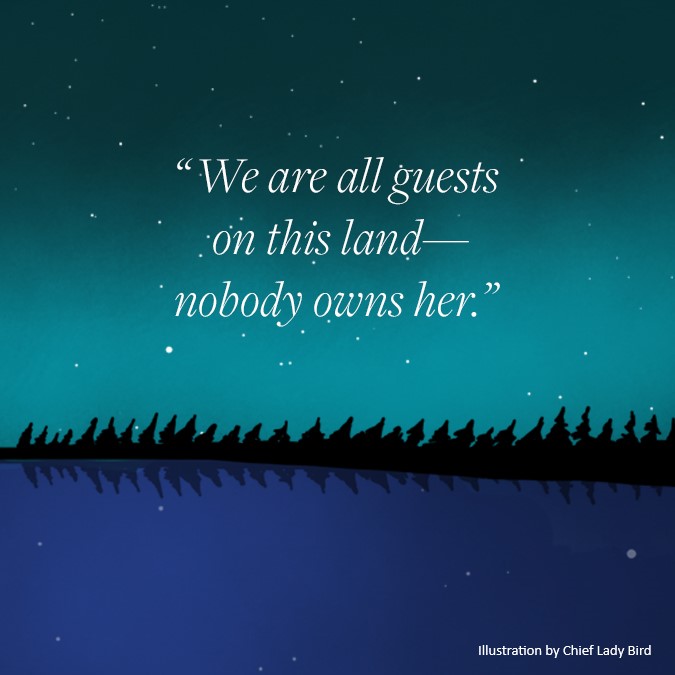 Land and
water
Land and
water
https://redpaper.yellowheadinstitute.org/
- Land Back report on how Canada dispossesses Indigenous people from the land and what
communities are doing to get it back
http://www.waterallies.com/ - settler/ally UofT research group on water – research, building alliances and promoting strategies to protect water
https://indigenouslandstewardshipto.files.wordpress.com/2019/09/the_indigenous_environmental_history_of.pdf
Indigenous environmental history of Toronto by Jon Johnson
Land as
pedagogy: Nishnaabeg intelligence and rebellious transformation by
Leanne
Betasamosake Simpson https://jps.library.utoronto.ca/index.php/des/article/view/22170
https://nonprofitquarterly.org/fire-forests-and-our-lands-an-indigenous-ecological-perspective/
- fire ecology
https://queertheland.org/ - Queer the Land is a Seattle-based collaborative project grounded in the self-determination of queer, trans, and two spirit Black/indigenous/people of color (QT2BIPOC) and the vision of collectively owning land and labor.
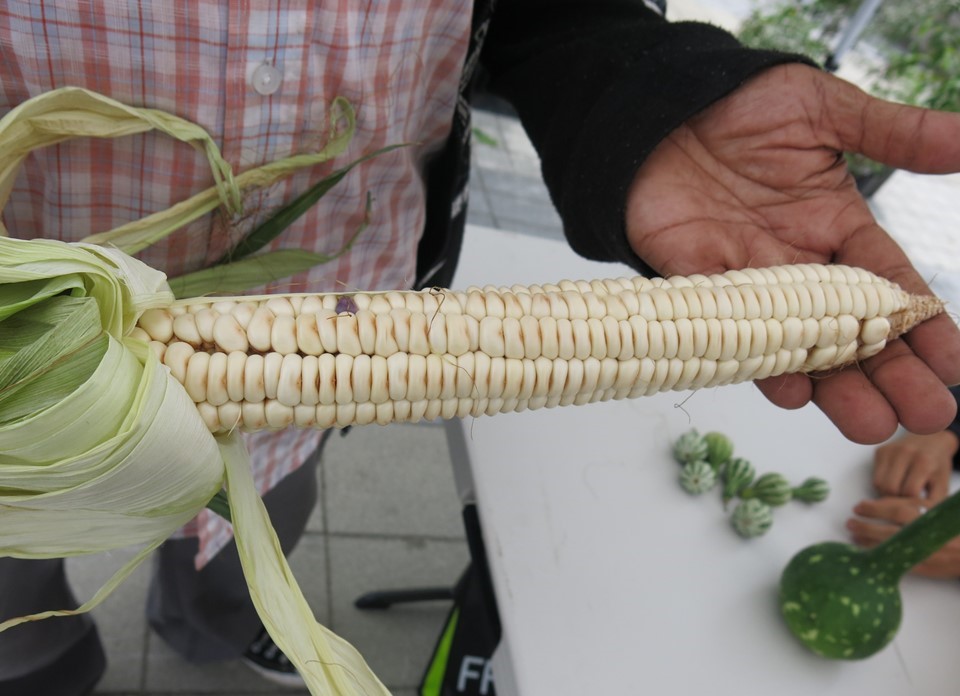 Indigenous
food sovereignty
Indigenous
food sovereignty
Dawn Morrison defines Indigenous Food Sovereignty https://www.
Food
Secure Canada discussion paper on Indigenous food sovereignty https://foodsecurecanada.org/resources-news/newsletters/discussion-papers-peoples-food-policy
http://creatorsgarden.blogspot.com/
& https://www.facebook.com/CreatorsGarden/-
Joseph Pitawanakwat shares teachings about plants, place and health through
blog postings and videos
Treaties, territories and self-determination
https://native-land.ca/ international map
with territories, languages, treaties
A Treaty Guide for Torontonians - multimedia exploration by the Toronto Treaty Collective
http://www.groundworkforchange.org/aboriginal-title-land-and-water-rights.html
https://nandogikendan.com/treaties/
https://www.firstpeopleslaw.com/ articles on current legal initiatives defending and advancing Indigenous peoples' Aboriginal title, rights and Treaty rights
https://firststoryblog.wordpress.com/
exploring the Indigenous history of Toronto
https://sidait-atris.aadnc-aandc.gc.ca/atris_online/home-accueil.aspx - Government of Canada database of treaties
searchable by keyword, location or postal code.
https://www.canada.ca/en/department-justice/news/2017/07/realizing_a_nation-to-nationrelationshipwiththeindigenouspeoples.html
- address by Jody Wilson-Raybould, MP on steps needed for true reconciliation
https://www.torontopubliclibrary.ca/detail.jsp?Entt=RDM3712063&R=3712063
Canadian Geographic Indigenous Peoples Atlas of Canada is available at the
Toronto Public Library
Land Acknowledgements
https://native-land.ca/territory-acknowledgement/
https://futuregroundnetwork.org/resource/how-to-acknowledge-indigenous-territory/
Key Documents
Truth and Reconciliation Commission (TRC) https://nctr.ca/ exhibits, links to reports, teaching resources
TRC Calls to Action https://ehprnh2mwo3.exactdn.com/wp-content/uploads/2021/01/Calls_to_Action_English2.pdf
https://www.indigenouswatchdog.org/2025/03/05/trc-calls-to-action-status-may-13-2022/ Reports on status of TRC Calls to Action
https://www.thecanadianencyclopedia.ca/en/article/i-couldnt-forget-reflections-on-truth-and-reconciliation
- author Lee Maracle’s reflection on the findings of the Truth and
Reconciliation Commission
National
Inquiry into Murdered and Missing Indigenous Women, Girls and Two Spirit people
https://www.mmiwg-ffada.ca/ - final
report and calls to action, plus stories, art and video submissions from
contributors
The
Canadian government knew about the conditions in residential schools as early
as 1907 with the Bryce Report https://fncaringsociety.com/sites/default/files/dr._peter_henderson_bryce_information_sheet.pdf
Canadian
Human Rights Tribunal finds Canadian government discriminates against
Indigenous children https://fncaringsociety.com/sites/default/files/Information%20Sheet%20re%20CHRT%20Decision.pdf
United
Nations Declaration on the Rights of Indigenous Peoples (UNDRIP) https://www.un.org/development/desa/indigenouspeoples/declaration-on-the-rights-of-indigenous-peoples.html
- text available in multiple languages.
Language
https://ojibwe.net/lessons/beginner/the-sound-of-our-language/
pronunciation of Anishnaabowin
http://www.wakingupojibwe.ca/ teaching and learning Anishnaabowin
https://ogimaamikana.tumblr.com./ The
Ogimaa Mikana Project is an effort to restore Anishinaabemowin place-names to
the streets, avenues, roads, paths, and trails of Gichi Kiiwenging (Toronto) -
transforming a landscape that often obscures or makes invisible the presence of
Indigenous peoples.
https://indigenousstudies.utoronto.ca/ckq/ Ciimaan/Kahuwe’yá/Qajaq language initiative
https://www.noslangues-ourlanguages.gc.ca/en/ressources-resources/autochtones-aboriginals/apprentissage-learning-eng
- Indigenous languages across Canada
Protocols
https://www.cbc.ca/parents/learning/view/powwow-guide - attending powwows
https://www.oise.utoronto.ca/deepeningknowledge/elders-invitation-protocol-resources - working with elders
https://www.ictinc.ca/blog/6-guidelines-for-projects-involving-traditional-indigenous-knowledge - working with traditional knowledge
Sema (tobacco):
https://www.torontomu.ca/content/dam/aec/pdfs/TEACHINGS%20ON%20SEMEH_Tobacco.pdf and https://tobaccowise.cancercareontario.ca/en
Two Spirited People
In the news
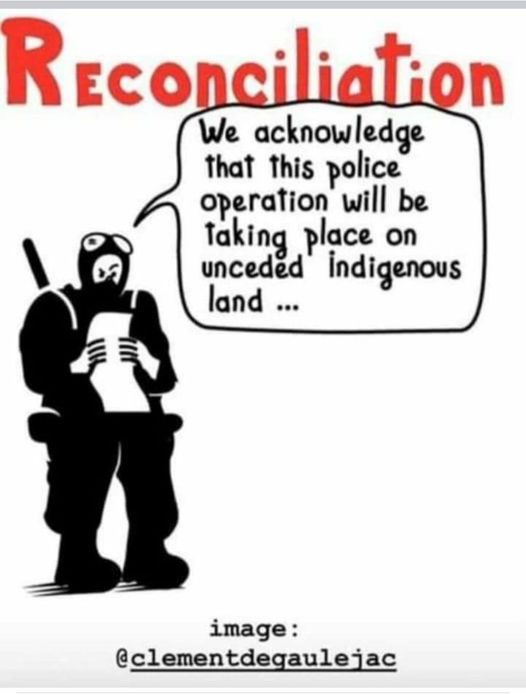 Wet’suwet’en land defence
Wet’suwet’en land defence
http://unistoten.camp/supportertoolkit2020/
A transcript of Audrey Huntley’s talk at a demonstration in Toronto on February 22, 2020 explains the importance of defending land and makes links to violence against women, children, trans and 2 spirited people.
Remains of children in residential schools
https://woodlandculturalcentre.ca/the-campaign/ - Save the Evidence campaign
https://earthtotables.org/essays/mush-hole/ - an essay on the Mohawk Institute and reclaiming food traditions, with facilitating questions
Multimedia
https://nandogikendan.com/treaty-violation-lessons/
- multimedia education site with an abundance of links, art and discussion
questions
Canadian
Geographic Indigenous Peoples Atlas of Canada has short essays from Indigenous
contributors of many nations on a wide range of topics. Some content is online https://indigenouspeoplesatlasofcanada.ca/
The full volumes complete with maps can be taken out from Toronto Public
Library branches https://www.torontopubliclibrary.ca/detail.jsp?Entt=RDM3712063&R=3712063
https://www.redressproject.org/exhibitions/
- multimedia art by artist Jaime Black highlighting murdered and missing
Indigenous women
https://walkingeaglenews.com/ political satire
Earth to
Tables Legacies https://earthtotables.org/
videos, photo essays and facilitation guides documenting intergenerational and
intercultural exchanges between farmers, food activists and academics in
Mexico, Six Nations and Canada.
https://moccasinidentifier.com - promotes public awareness of significant cultural historical sites and the ancestral presence of First Nations, Metis and Indigenous Communities.
http://activehistory.ca/remember-i-resist-i-redraw/ posters
http://leftycartoons.com/2008/10/09/the-story-of-bob-and-race/
http://www.groundworkforchange.org/having-crucial-conversations.html - videos
https://www.epl.ca/blogs/post/indigenous-stories-and-reconciliation/
10 books to read from Edmonton Public Library
Music
Just a few artists: Leonard Sumner * The Halluci Nation (formerly A Tribe Called Red) * Snotty Nose Rez Kids * Leanne Betasamosake Simpson * Supaman * Iskwe * Kelly Fraser * Buffy Sainte Marie * Jeremy Dutcher * Tanya Tagaq
https://www.indigenousmusicawards.com/
for more ideas

